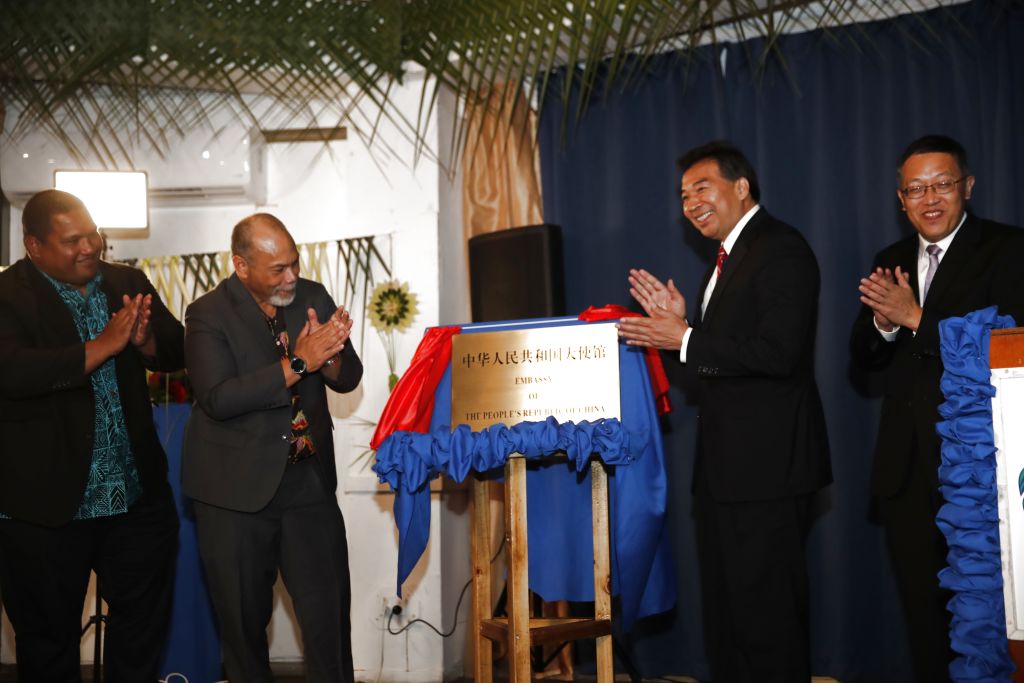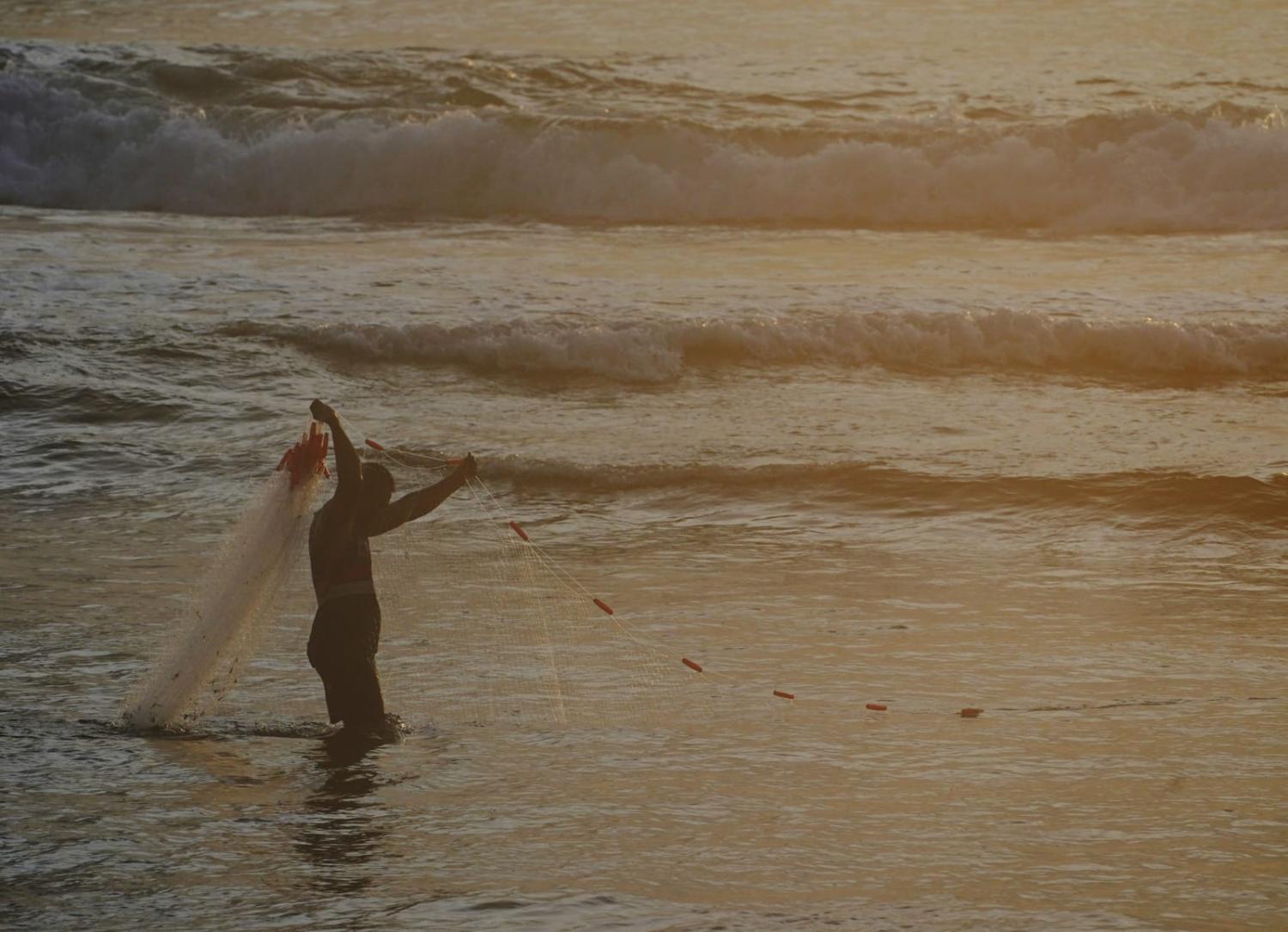On 15 January, when Nauru switched its diplomatic recognition to Beijing, “Nauru severs its ties with Taiwan” was the top trending topic on Weibo. For two weeks following, we tracked mentions of Nauru across China’s most influential social media platforms – Weibo, WeChat and Douyin. Netizens rejoiced because Taiwan received a blow two days after their presidential elections, where China’s least favourite party, the Democratic Progressive Party, secured a third term. The switch gave netizens a channel to release their anger towards Taiwan and celebrate the power of their country.
In contrast to China’s official line, reviews of Nauru on Chinese social media were mixed. Ye Lihua, a WeChat political influencer, wrote:
Nauru exists in the international arena only because Americans need its vote at the United Nations General Assembly and its voice outside the UN, nothing more … Therefore, when Nauru suddenly stepped forward to announce the termination of diplomatic relations with Taiwan, the issue was not about whether it benefited or harmed Nauru; it was not for the Nauruan people but for the people in Taiwan to see.
On Weibo, many mocked Taiwan’s isolation, counting and listing its remaining “diplomatic allies”, and discussing why they stay with Taiwan. Netizens concluded they were small, pawns of the United States, or both.
When there is a switch, social media leaders examine their new partner. Despite the positive state line, “it is never too late to have a friend”, depictions of Nauru were largely negative. Many netizens despised Nauru because it started relations with China in 2002 only to cut them in 2005. Weibo vlogger “Tushan Turen Tugou” wrote in a popular post:
Nauru is nothing more than a fence-sitter and a jumping clown. A change in government might lead to an immediate about-face. In the past, these shifts happened because China lacked sufficient influence in the Asia-Pacific and didn’t have enough hard power. The situation has changed. China’s strength has significantly increased, and the likelihood of small, broken countries like Nauru flip-flopping again is slim.
Nauru’s past as a “bird poop” mine for phosphate, a money-laundering hub, a criminal base and dumping ground for refugees was highlighted. WeChat writers and video bloggers called Nauru an “empire of poop-digging,” a “beggar” and a “weird country”. Negative sentiments didn’t emerge out of nowhere: they reflect previous Chinese state rhetoric. In 2018, during a meeting of the Pacific Islands Forum, tensions arose after Nauru’s president Baron Waqa abruptly cut off the leader of a Chinese delegation when he tried to speak. The magazine Ziguangge posted a response from China’s Ministry of Foreign Affairs:
Recently, the President of Nauru claimed China is a big country bullying small nations. Individuals should understand a simple truth: only by showing self-respect can one earn respect. This applies to individuals and nations alike. Self-respect and dignity have nothing to do with the size of a country!
A month later, the Xinhua-affiliated Liaowang Institute released a WeChat article titled “The absence of ‘bird poops’ leaves this overnight-wealthy nation on the brink of collapse! Involved in laundering $70 billion for the Russian mob, assisting Australia in building a ‘prison,’ all just for the sake of making money...” For social media users, the antics of Baron Waqa – now, awkwardly, the secretary general of the Pacific Islands Forum – are fresh.

Posts focused on Nauru’s fleeting wealth from phosphate mining. Most videos about Nauru on WeChat, Weibo and Douyin contained “bird poop” in the title. Nauru was “a place where birds don’t poop” (indicating extreme poverty) or a place that developed through “bird poop luck”. Videos largely belittled Nauru.
On 24 January, China and Nauru resumed diplomatic relations. Many social media users complimented Nauru’s decision to “join the historical trend”. However, many wondered if Nauru might switch again. To address this concern, Nauru’s decision was described as a “solemn political commitment” by a Chinese official.
A few Chinese official media accounts maintained a critical view of Nauru, highlighting how its past wealth was overshadowed by financial struggles; a country with a beautiful landscape but no tourists. Most official accounts, unsurprisingly, promoted Nauru as a desirable and hospitable destination. By contrast, Weibo and Douyin videos highlighted the country’s geographic size – the third smallest country partnering the third largest country in the world.
Chinese netizens are already shifting their attention to Taiwan’s remaining allies. Official accounts have reposted Western news indicating a possible switch by Tuvalu. Netizens expect it to happen but remain critical. “Tushan Turen Tugou” posted:
Judging from the pre-release statements by Pan Enniu (representative in Taiwan, Minister of Finance, right, the Minister of Finance of Tuvalu is concurrently serving as the representative, because this poor island nation doesn’t have much income, its major revenue comes from squeezing money out of Taiwan!), his bargaining style seems too obvious, and we shouldn’t pay him notice. In 2019, Tuvalu extorted us, demanding various things, including asking us to build an artificial island and pay XX million dollars; we ignored him then. Do not harbour high hopes for this poor island nation severing ties with Taiwan, although it’s possible.
For all their talk of guano, grasping local politicians and Russian mobsters, Chinese netizens agree Nauru’s switch marks a new beginning, and Taiwan is sure to lose its remaining allies. Yet after decades of being demonised by the Chinese state, it might take a while for these countries to win much love inside China.


